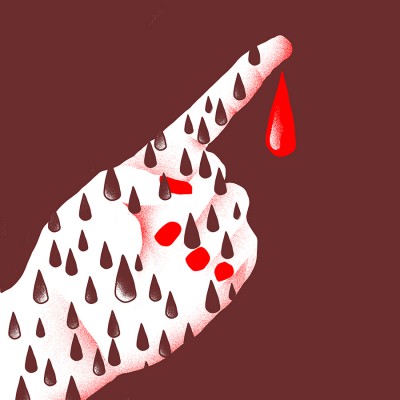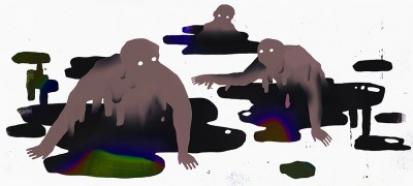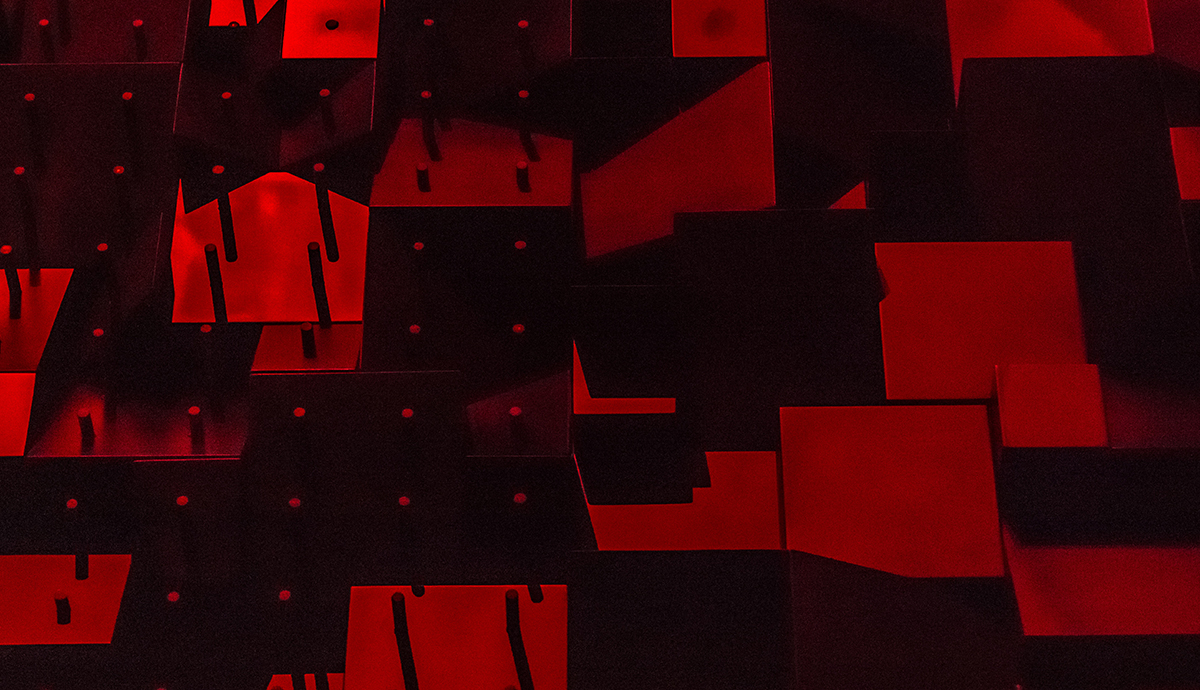Art and Oil

During the mid-to-late-eighties I worked for two oil field companies, Oilfield Rental Service Company and later Petco Fishing and Rental Tools, both in Morgan City, Louisiana. Both businesses fabricated, tested, and delivered to the docks blowout preventer stacks and manifolds*, configured and tested various combinations of spools and flanges, and filled orders from various oil companies for strings of drill pipe and handling tools.** Occasionally if a problem arose or a job needed checking in, we flew out to the rig. One flight out we nearly crashed into the helicopter landing pad. Otherwise my days were filled kicking pipe (standing on layers of thirty foot sections of drill pipe and with another pipe hand-kicking the pipe from one place to another), beating nuts tight on various kinds of couplings, then typing up the paperwork to accompany the orders. Most of my time I was on twenty-four hour call, seven days a week.
Being surrounded by such an alien landscape, both south Louisiana and the oil field, I felt compelled to begin writing, to explore the past and present in order to see if either could fix the other. In response to this need, I enrolled in an extension course at Nichols State University in Thibodaux, a creative writing course taught by Glenn R. Swetman. The course met once a week at the local Morgan City High School. If my beeper went off, I could be at work in fifteen minutes. Soon my nights were filled with writing poetry and fiction, and much to my delight, George Core, editor of Sewanee Review, accepted four of my poems for publication: two in Winter 1987 and two in Fall 1988. One of those poems looks back from that time to an earlier time in my childhood, much as this is looking back from late adulthood.
I know now that exploring memories is an attempt to decode the present, to put a map on the face of time, even possibly to define time. Then, all I knew was the future I wanted was not in the oil field, that the balance between my body and mind was becoming impossible to maintain. I quit the oil field in the summer of 1986 to enroll in graduate school at the University of South Louisiana in the coming fall.
As I look over the poems I wrote then from my present time and place in western Wisconsin, I wonder if I should head out to the oil fields of North Dakota to tap into the same imbalance from all those years ago. Fortunately, the answer is no. The oil field is going to bust and any crazy idea of recreating the youthful energy I brought to the oil field of south Louisiana over thirty years ago is unlikely. The fact remains, I need to find a new oil field, one that demands the physical and mental, one that pushes me into the past with language of the present. Back in Louisiana I wrote, reflecting on my childhood, “Memory chew[ed] up the buildings, lines of unknown men / shoveling ice into wheelbarrows. / Shoveling slush gray rock salt / into slowly moving reefer boxcars.” I wonder now what reflection will open a new landscape of words.
*see www.nov.com/Segments/Rig_Systems/Land/Drilling_Pressure_Control/Blowout_....
**see http://www.capitaloilfield.com/site/handling_tools.
Brian Fitch lives in western Wisconsin with his wife the poet Jennifer Brantley and their cat Moxie. His fiction or poetry has appeared in North American Review, Prairie Schooner, Sewanee Review, Helsinki Quarterly, Ars Interpres, Bark, and others. Brian's Story, "Better Than Dead" appears in issue 296.3, Summer 2011 as well as his story “Nothing Is Always the Same” in the 2015 Spring issue, 300.2.
Check out Brian Fitch's other blog posts
Artist:
Daniel Zender is a full time freelance illustrator and designer and an adjunct professor of art and design at Queens College in Queens, NY. He is also the founder of an ongoing zine series entitled Hydrochloric, featuring many different artists and their works. He is a recipient of the 2015 Art Directors Club Young Guns award.
Recommended
Nor’easter
Post-Op Appointment With My Father
Cedar Valley Youth Poet Laureate | Fall 2024 Workshop





